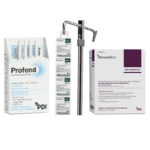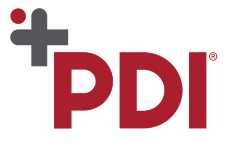Interventional Care


We notice that you are visiting us from . This site only services US-based visitors. Would you like to visit the site that is appropriate for your location?

Although Alzheimer’s disease was first discovered in 1906, modern research into the cause of the disease did not start in earnest until the 1970’s1. In 1980 the Alzheimer’s Association was founded, which has played a key role in both raising awareness of the disease and advocating for advancements in research. Of all forms of dementia, Alzheimer’s is the most common. The 2020 Alzheimer’s facts and figures reports tell us that over 6 million Americans are living with this devastating disease, and by 2050 it is projected that number will increase to 12.7 million2. It is known that although deaths from other diseases such as heart disease have decreased over time, Alzheimer’s is the opposite, increasing a whopping 145% since the year 20002.
Alzheimer’s is a serious and deadly disease. A person diagnosed with Alzheimer’s survives on average only four to eight years after diagnosis. Alzheimer’s disease kills more people than prostate cancer and breast cancer combined. Among people aged 70, 61% of those with Alzheimer’s dementia are expected to die before the age of 80 compared with 30% of people without Alzheimer’s — a rate twice as high2.
Research into the Cause
Research into the cause of Alzheimer’s is ongoing, and there is still no cure because there is still no understanding of the true causative agent of the disease. The thinking is that there may be many contributing factors to developing Alzheimer’s, including lifestyle, genetic, and environmental reasons. However, as research continues, there is more and more evidence pointing to potentially infectious sources, such as a virus or a bacterium. Originally, research theorizing this was dismissed, but now researchers are looking at it with fresh eyes.
Most of the research into the causative agent of Alzheimer’s has focused on the idea that clumps of amyloid proteins form plaques and tangles on the neurons in the brain, causing inflammation and cell death. It was not thought that an infectious theory could easily go hand in hand with the amyloid theory, but now researchers are reconsidering. It is now more commonly thought that it is possible the proteins are a protective immune reaction following any number of causative infections including pneumonia, herpes, and even gingivitis3.
Much more research is needed around this field of study in the fight against this disease. If the infectious theory proves to be true, treating and preventing infections will become a key way to the prevention of this devastating disease.
How COVID-19 has Impacted Alzheimer’s Research
Since the rise of SARS-CoV-2 and subsequently COVID-19, an increased focus on cleaning and disinfection has also arisen as a key way to prevent infections. New disinfection technology and products, such as continuously active disinfectants, provide continuing antimicrobial activity on a surface for up to 24 hours to combat the most common healthcare-associated pathogens4. As we move forward and learn more about what causes such diseases as Alzheimer’s and continue to combat disease-causing pathogens of all kinds, such technology will be an important step in the fight against infections.